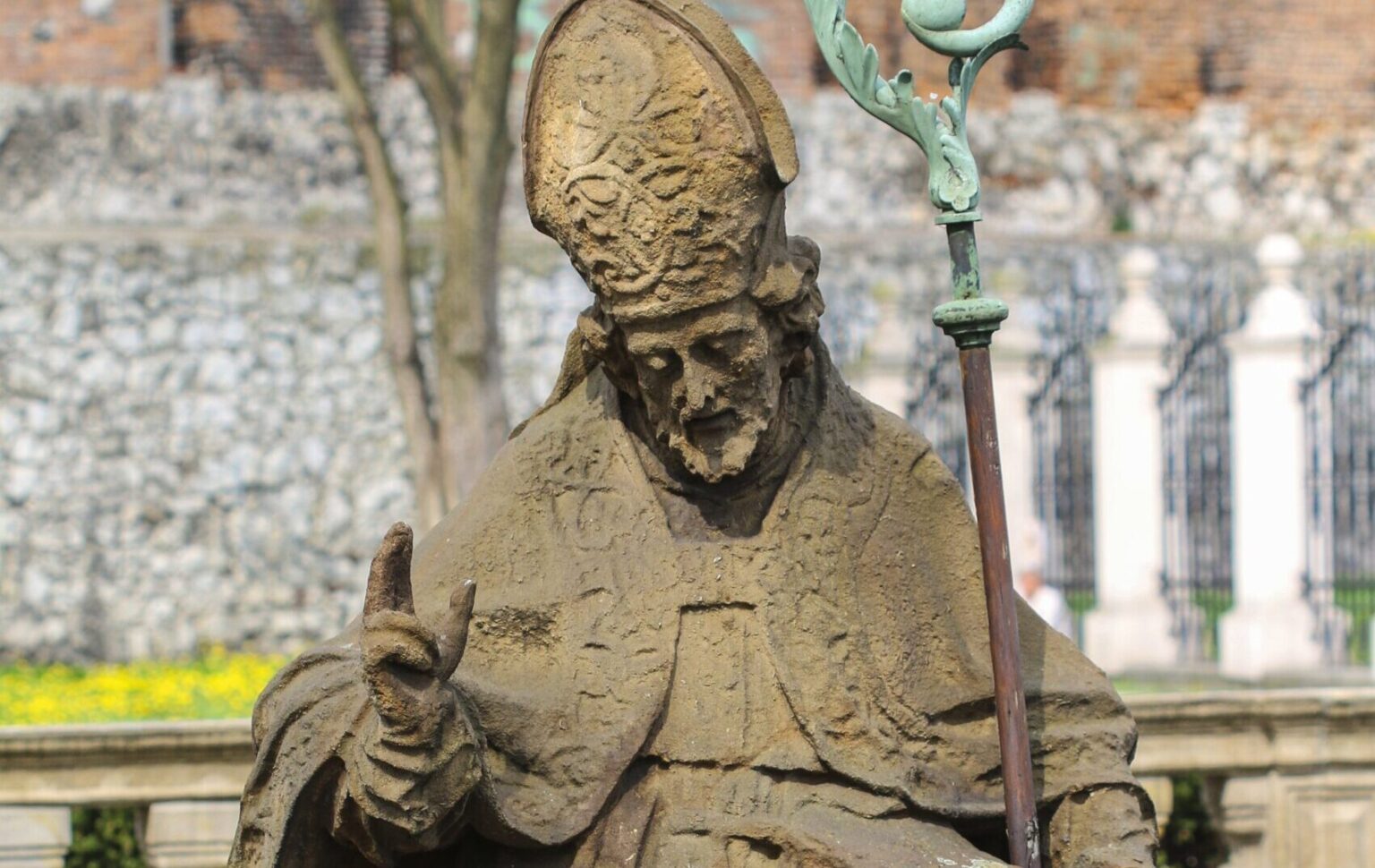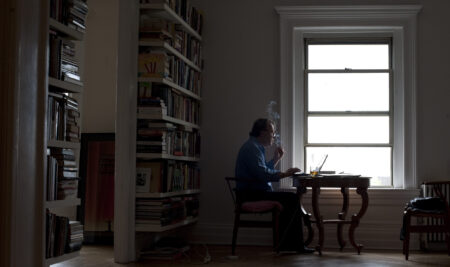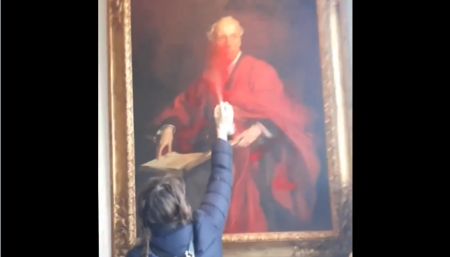“Take heed unto yourselves, and to all the flock, in which the Holy Spirit hath made you bishops, to feed the church of the Lord which he purchased with his own blood.”
Acts 20:28
On May 8, 1079, the Bishop of Kraków, Stanislaus of Szczepanów, was fulfilling his priestly duties as first articulated and exemplified by our Lord and described by St. Paul in Acts, leading his flock in celebrating Mass. It was an obligation that he had performed thousands of times. That day in the Basilica of St. Michael the Archangel, a church just beyond the old city of Kraków, he would not complete his priestly function.
As Bishop Stanislaus celebrated Mass, agents of King Boleslav II barged in and attempted to kill him. But the king’s men, so moved by the mystery celebrated before them, could not—or would not—take Bishop Stanislaus’s life. The king, enraged first by the intransigence of the bishop and then the seeming incompetence of his men, took matters into his own hands, plunged his sword through the bishop’s body as he celebrated Mass.
Upon killing Bishop Stanislaus, the king ordered the men to chop up his body and scatter the pieces—but the bishop’s body miraculously reassembled.
I visited the Basilica of St. Michael the Archangel yesterday. For the next few weeks, I’ll be in Kraków, studying the history and tradition of Catholic Social Teaching. Never fear, I’ll be reporting (mostly through TAC’s State of the Union blog) on the war in Ukraine, its perception here in Poland, and other experiences I’ll have along the way.
Why then, have I started this trip by relaying the story of St. Stanislaus, who was canonized in 1253 by Pope Innocent IV?
I believe the events that led to his martyrdom speak profoundly to the political moment in which Americans currently find themselves. What drove Boleslav to murder was the bishop’s willingness to condemn the king’s sexually and morally deviant lifestyle. St. Stanislaus had implored the king to cling to his wife. Eventually, he excommunicated the wayward monarch, leading him to call St. Stanislaus, according to Gallus Anonymus, the “traitor bishop.”
In a 2003 letter to the Archdiocese of Kraków, Pope John Paul II wrote, “As Bishop and Pastor he proclaimed faith in God…. He taught the moral order in the family based on sacramental marriage. He taught the moral order within the State, reminding even the king that in his actions he should keep in mind the unchanging Law of God.”
The murder of St. Stanislaus caused such a stir among the people that Boleslav was overthrown. Tradition teaches us that the king lived out some of his last days in a monastery, where he repented for what he’d done. Boomers want to send leftist youths to communist countries, but maybe the solution is simpler than that.
“Your people were given a Pastor who laid down his life for his sheep,” Pope Pius XII wrote in a letter celebrating the 700th anniversary of St. Stanislaus’s canonization, “defending Christian faith and morality, who in pouring out his blood made the seeds of the Gospel even more fruitful.”
Those who have defended the dignity of the human person and the unity of marriage have, throughout history, been targeted by those who wish to subvert the natural law and turn their vices, sexual and otherwise, into virtue. That battle will continue to rage.
Though it is never invited, there will be further violence and more martyrs. But it is a just war, and we have holy men and women like St. Stanislaus on our side. Take heart, the battle has already been won.
Read the full article here














